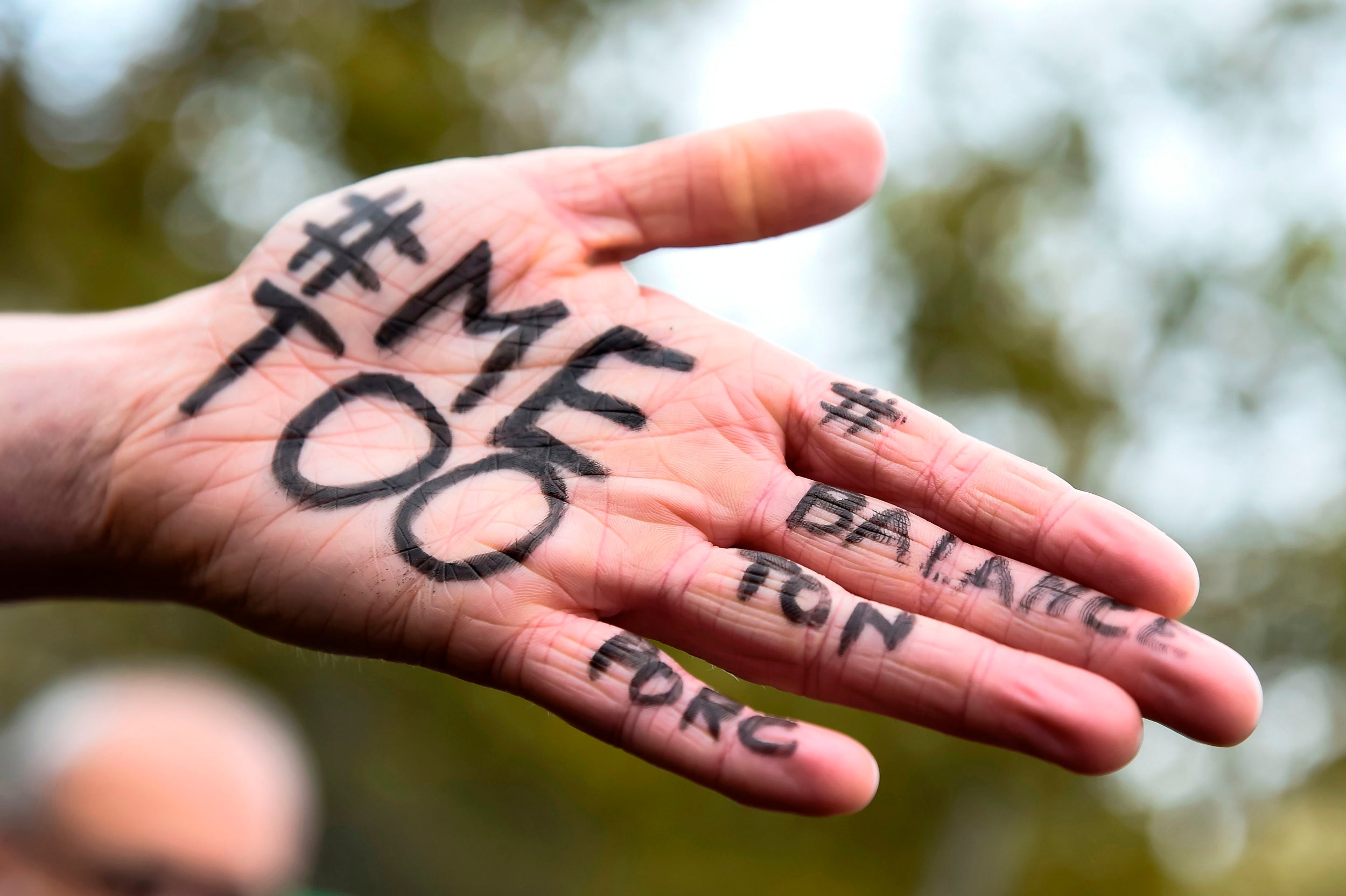Men more likely to victim-blame women who are sexually harassed, research indicates
Male perpetrators given ‘benefit of the doubt’ by fellow members of sex, academics say

Your support helps us to tell the story
From reproductive rights to climate change to Big Tech, The Independent is on the ground when the story is developing. Whether it's investigating the financials of Elon Musk's pro-Trump PAC or producing our latest documentary, 'The A Word', which shines a light on the American women fighting for reproductive rights, we know how important it is to parse out the facts from the messaging.
At such a critical moment in US history, we need reporters on the ground. Your donation allows us to keep sending journalists to speak to both sides of the story.
The Independent is trusted by Americans across the entire political spectrum. And unlike many other quality news outlets, we choose not to lock Americans out of our reporting and analysis with paywalls. We believe quality journalism should be available to everyone, paid for by those who can afford it.
Your support makes all the difference.Men are more likely to victim-blame women who are sexually harassed because they are more empathetic to other men, research suggests.
Men and women show equal levels of empathy for female victims of sexual harassment – but men are far more likely to see things from the male perpetrator’s point of view, two studies have found.
The researchers, from the universities of Exeter, Bath and Queensland, say the findings highlight a dark side to empathy.
Male students were asked to respond to a “clear-cut” example of sexual harassment – and the men who blamed the victim more than women showed greater empathy for the male sexual harasser.
Less straightforward cases may lead to increased empathy with the male perpetrator and greater levels of blame towards female victims, the researchers have warned.
The findings come after the #MeToo movement prompted women across the world to share their share their experiences of sexual harassment and its negative effects on their lives.
The academics wrote: “Accusations of in-group wrongdoing, as in the case of a man’s sexual harassment of a woman, may pose a threat to men’s sense of their gender group as moral.
“To reduce this threat, men may afford male perpetrators the benefit of the doubt and interpret events in a way that is biased towards that perpetrator’s perspective.”
They added that men may believe that the male perpetrator did not mean to cause harm, that what occurred was based on a misunderstanding, or that the allegations are false accounts.
The paper, published in the journal Psychology of Women Quarterly, said a fear of being blamed contributes to low rates of reporting of sexual harassment among women.
“Despite movements such as #MeToo, women still fear negative consequences of making a sexual harassment complaint. Many women encounter victim-blaming attitudes when they do, especially from men,” said Dr Renata Bongiorno, who led the research.
Challenging myths that women provoke sexual harassment from men, or are often dishonest about their experiences, could help reduce empathy for male offenders, the researchers argue.
The paper calls on organisations to implement training to ensure decision makers are made aware of potential bias and trained to not be unduly influenced by their empathy for the perpetrator.
Dr Bongiorno added: “It is widely assumed that a lack of empathy for female victims explains why people blame them, but we actually found that empathy for the male sexual harasser was a more consistent explanation of variability in victim blame.
“To improve responding, everyone, but especially men, should be mindful that their empathy for a male sexual harasser can increase their likelihood of blaming women for being sexually harassed.”
Join our commenting forum
Join thought-provoking conversations, follow other Independent readers and see their replies
Comments